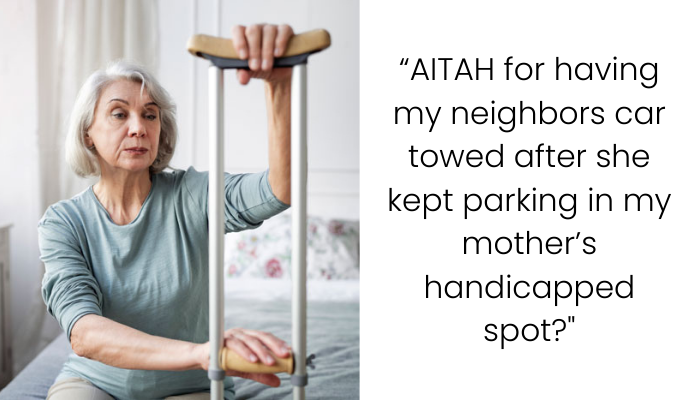Enforcing Handicap Parking Rights: A Homeowner’s Dilemma
A 29-year-old woman faced a challenging situation when her neighbor repeatedly occupied the handicapped parking spot designated for her disabled mother. Despite multiple requests for the neighbor to cease using the space, the neighbor dismissed these appeals, citing convenience and asserting that the street was public property. The homeowner, prioritizing her mother’s mobility needs, ultimately decided to have the neighbor’s car towed after an especially dismissive encounter. This action led to further conflict, with the neighbor expressing anger and using offensive language towards the homeowner.
The author’s mom became physically disabled a few years ago and moved in with her daughter

The woman put lots of time and effort into providing her mother with a handicapped parking spot in front of their house
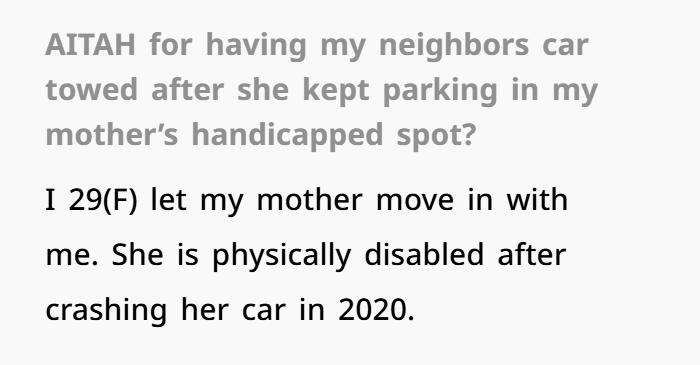
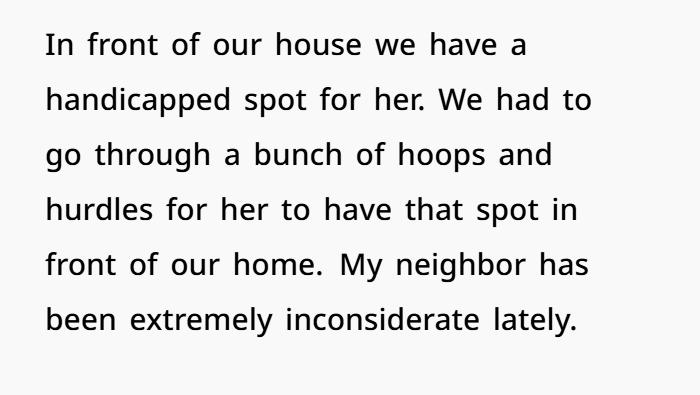
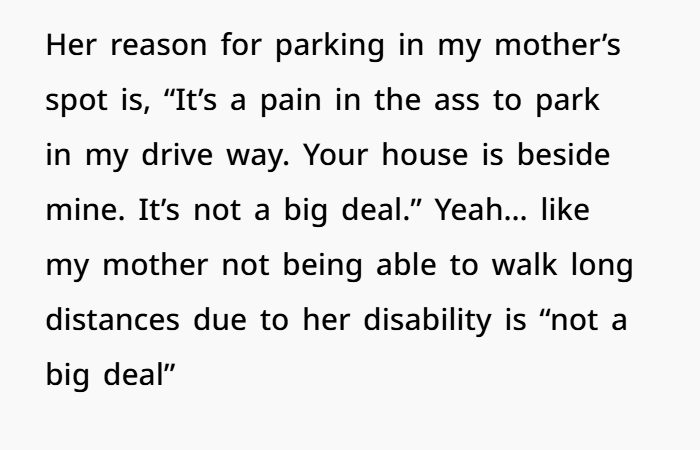


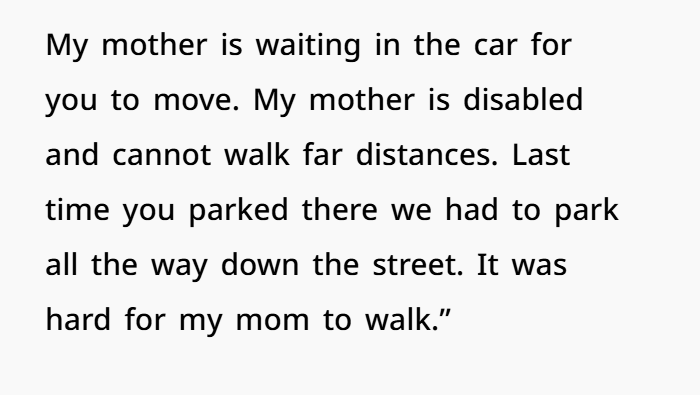
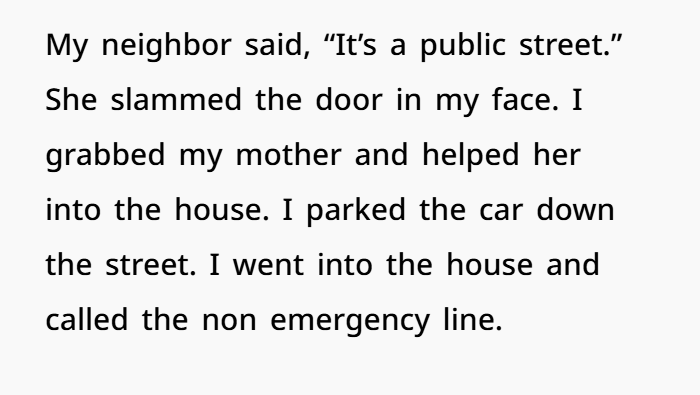
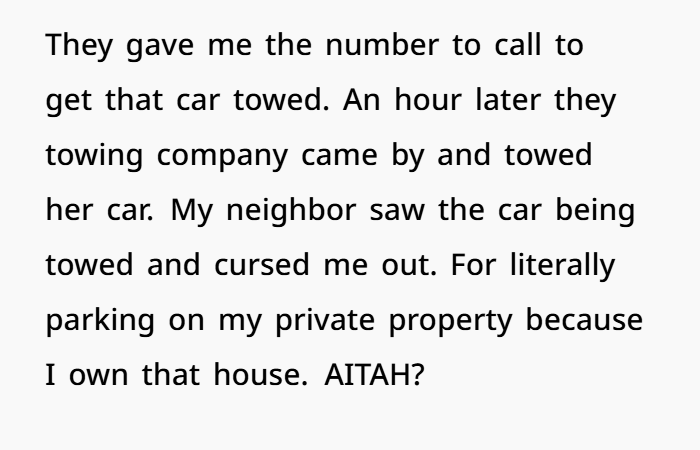
Navigating the complexities of residential parking, especially concerning designated handicapped spaces, can be challenging. Your decision to have your neighbor’s car towed after she repeatedly parked in your mother’s legally designated handicapped spot raises important considerations about legal rights, ethical obligations, and community relations.
Legal Considerations
In many jurisdictions, while public streets are generally available for parking by any vehicle, designated handicapped parking spaces are exceptions to this rule. These spaces are reserved exclusively for individuals with disabilities who possess the appropriate permits. Unauthorized use of such spaces is typically illegal and can result in fines or towing. For instance, in Chicago, only vehicles displaying a disabled placard or plate, along with a Residential Disabled Parking Permit, are permitted to park in designated residential disabled parking spaces. Violators are subject to ticketing and potential towing.
Your neighbor’s assertion that “it’s a public street” does not justify her unauthorized use of a handicapped spot. The law prioritizes accessibility for disabled individuals over the general public’s parking convenience.
Ethical and Community Considerations

Beyond legalities, there’s an ethical expectation for neighbors to respect accommodations made for individuals with disabilities. Your neighbor’s repeated disregard for your mother’s needs and her dismissive attitude exacerbate the situation. While towing her vehicle was within your rights, such actions can strain neighborly relations. Ideally, open communication should be the first approach to resolve such disputes. However, given your neighbor’s dismissive responses, escalating the matter by involving authorities became a necessary step to ensure your mother’s rights and well-being.
Commenters unanimously sided with the author here, also urging her to install security cameras to make sure the neighbor won’t seek any revenge
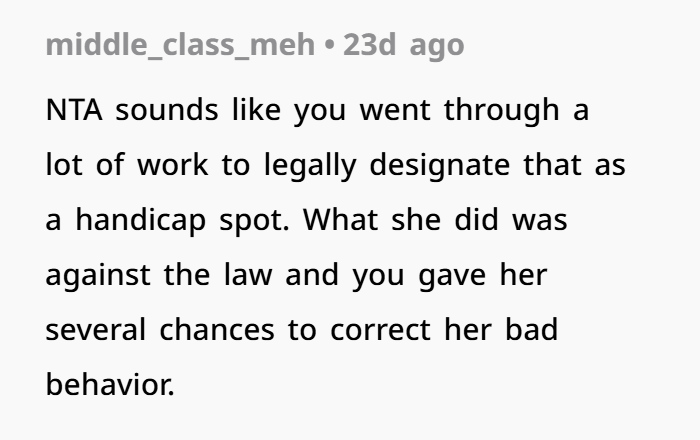
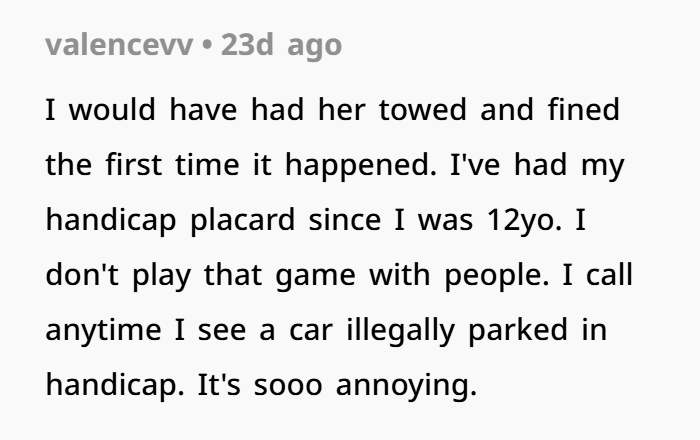
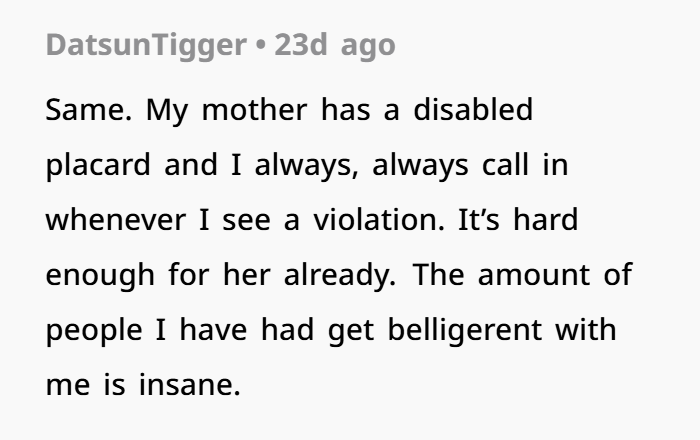
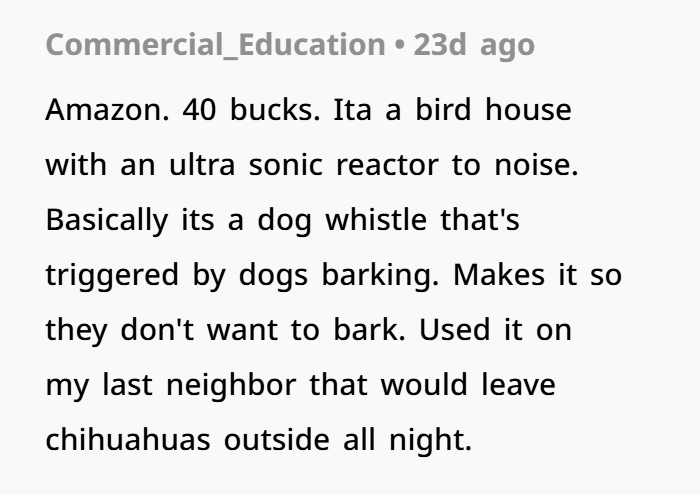

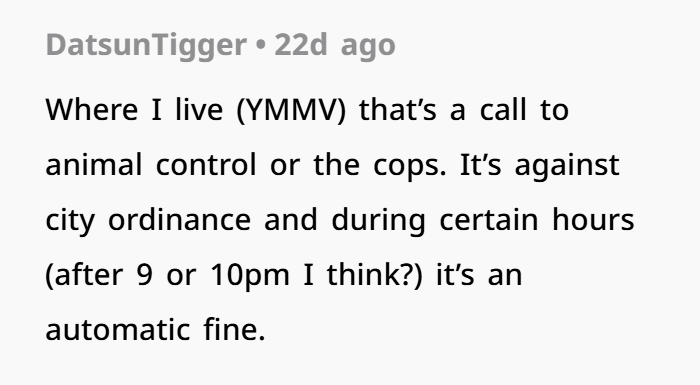
Considering the legal protections in place for handicapped parking and the ethical imperative to support individuals with disabilities, your actions appear justified. Ensuring your mother has access to her designated parking space is paramount. While it’s unfortunate that the situation escalated to involve towing, your neighbor’s repeated dismissals left you with limited alternatives. Maintaining documentation of such incidents and seeking legal counsel can further protect your rights and interests in ongoing disputes.

